Cash before the storm: WFP’s early action empowers Bangladeshis
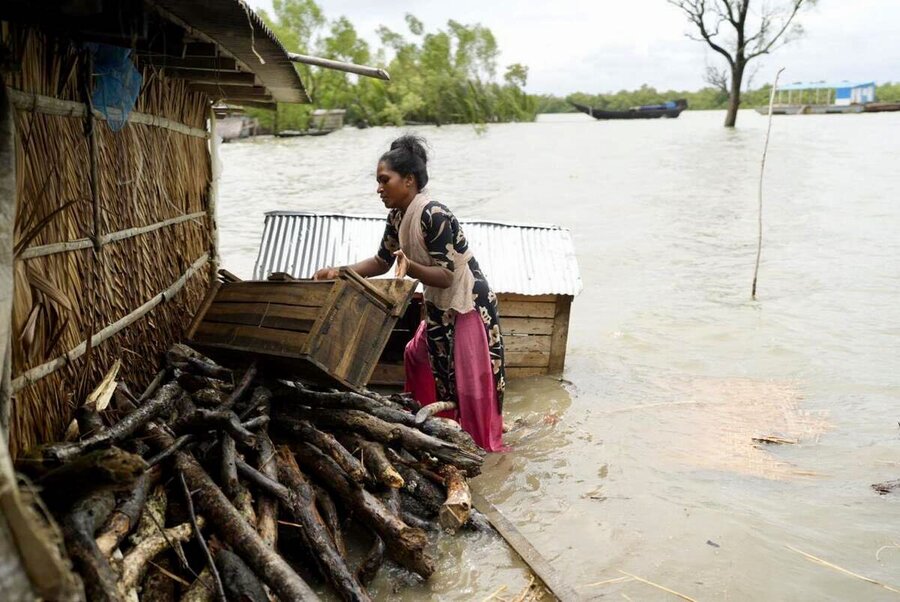
For Chompa Munda, the storms and floods that batter Bangladesh every year translate into an unending cycle of loss and hunger. In 2019, a deadly cyclone demolished her home in the country’s southwestern Satkhira district, forcing the young widow and her son to survive days without food.
But when another powerful cyclone barreled across Munda’s homeland last May, she was prepared. Hours before Remal landed, her mobile phone lit up: she had just received a US$43 cash transfer from the World Food Programme (WFP) to cushion its blow.
“It helped me a lot,” recalls Munda, 23, who catches and sells crabs for a living. Before heading for a storm shelter, she used some of the WFP money to buy food, drinking water and candles. The leftover cash would later help her recover from Remal, which flooded Munda’s home and affected some 3.7 million people overall.
Munda counts among tens of thousands of Bangladeshis who benefitted this year from some of WFP’s most impactful anticipatory, or forward, action efforts to date. Rolled out first in May, with the Government and humanitarian partners ahead of cyclone Remal - a first for WFP in responding to a cyclone - and again before massive July floods, they included a raft of initiatives.
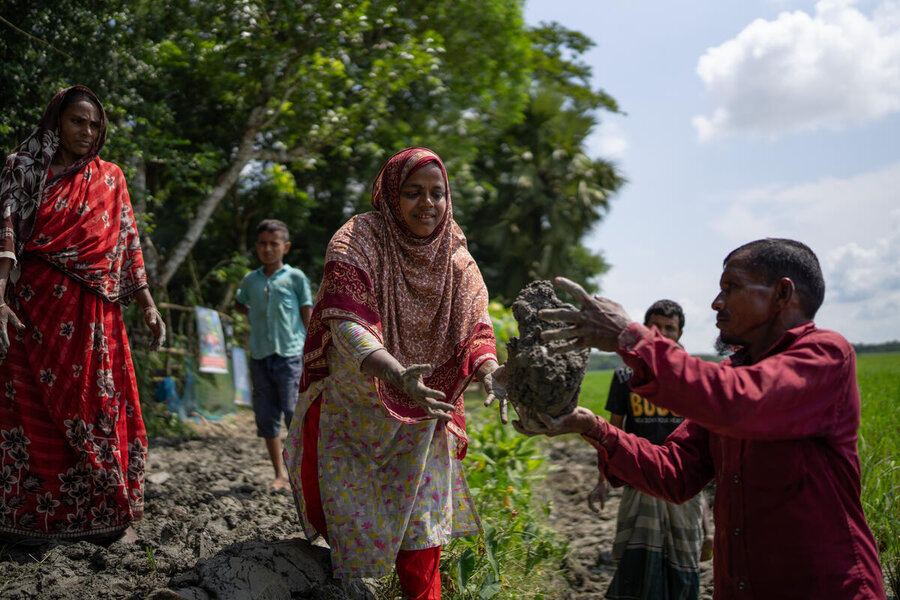
Besides cash assistance, they included early warning messages, evacuation support and, later, work programs and other support for struggling communities to rebuild and recover. WFP’s flood response alone, targeting Bangladesh’s northwestern Jamuna Basin districts, was our biggest early action effort ever.
“Bangladesh is really a pioneer,” says Jesse Mason, WFP senior technical advisor for climate early warning systems and anticipatory action. The sheer scale and swiftness of this year’s joint disaster response, he believes, will be a role model for others.
Behind the early action is a simple equation: it is cheaper and far more effective to prevent or mitigate climate disasters beforehand, rather than weeks after they strike. “It requires effort and it has costs,” Mason says. “But that pales by comparison to the suffering and cost of responding later.”
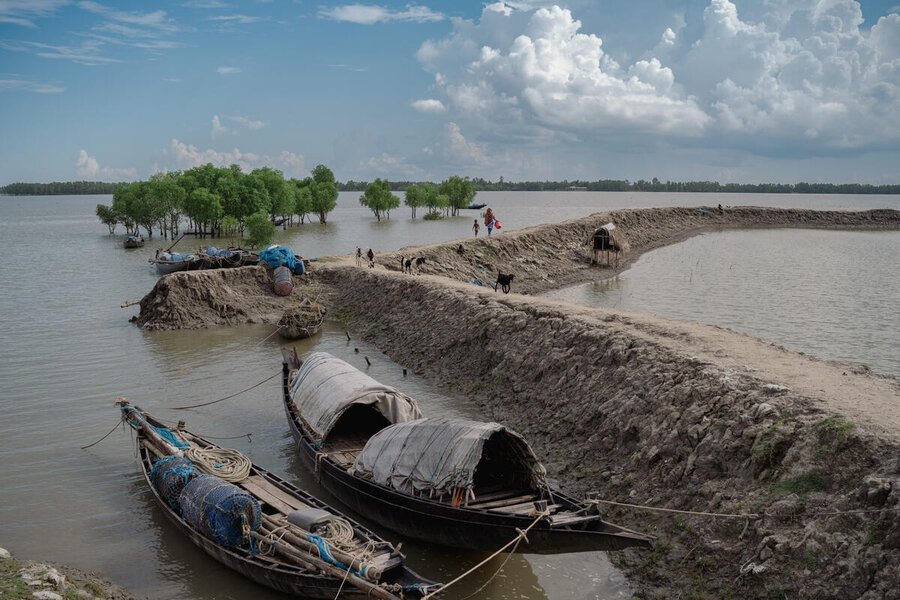
Such calculations are helping to drive climate talks now underway in Azerbaijan, where financing is a key theme. Backdropping the United Nations Climate Change Conference, or COP29 in Baku, is the grim reality that 2024 will likely be the warmest on record - following similar findings for 2023.
Little time to act
For weather hotspots like low-lying Bangladesh, the costs of climate change are immense. The coastal South Asian nation, cut through by rivers, counts among one of the world’s most at-risk countries to climate disasters. This year’s cyclone and monsoon season affected nearly 20 million people countrywide, deepening hunger that already grips more than one-fifth of the population.
Before the March-July cyclone season began, WFP had mapped out and created a database of vulnerable people to assist. With Remal closing in, prearranged United Nations disaster funding was released within minutes of the cyclone forecast trigger. A day before the cyclone hit, 150,000 people had WFP cash in hand.
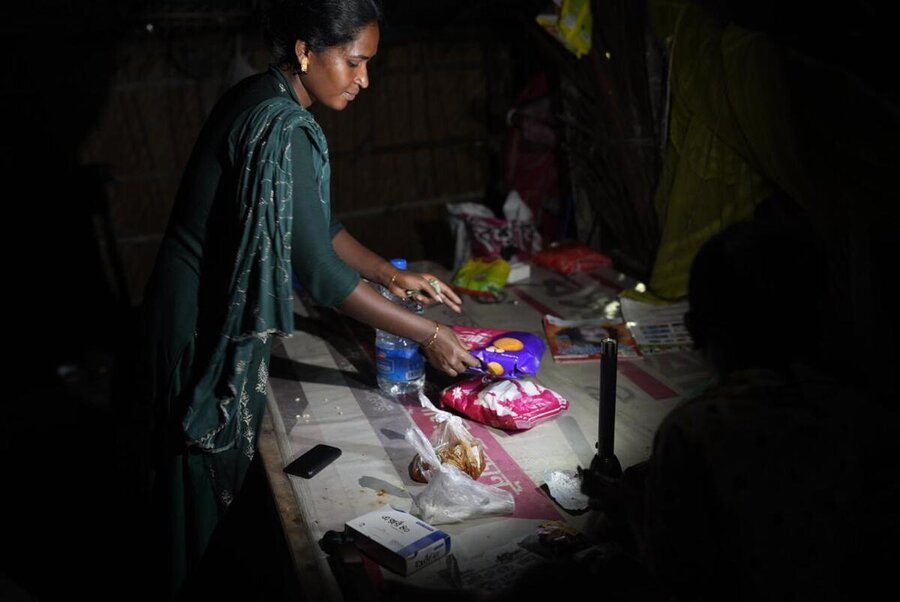
“We had very little time to act,” says Niger Dilnahar, an anticipatory action specialist for WFP Bangladesh. “We were able to get assistance out very quickly because we had prearranged our finances and identified our beneficiaries. This ensured people had time to use the money."
Bitheka Mondol, a mother of three and her family’s main breadwinner, spent her WFP cash to stock up on food and also pay for her girls' school expenses.“Though we are poor, I want my daughters to get an education and live a better life than ours,” she says.
She received more funds later on, by joining a WFP post-cyclone work project repairing storm-hit roads and embankments. “We are doing well now,” Mondol says.
Weeks later, Bangladesh was pummeled by another weather disaster. Heavy rainfall unleashed severe flooding in the country's northwestern Jamuna Basin area. Days before the deluge hit, WFP and other humanitarian agencies reached 430,000 people with early assistance. The support included not just cash, but also baby kits, water purification systems and storage containers to keep seeds and other precious assets dry.
Coordination key
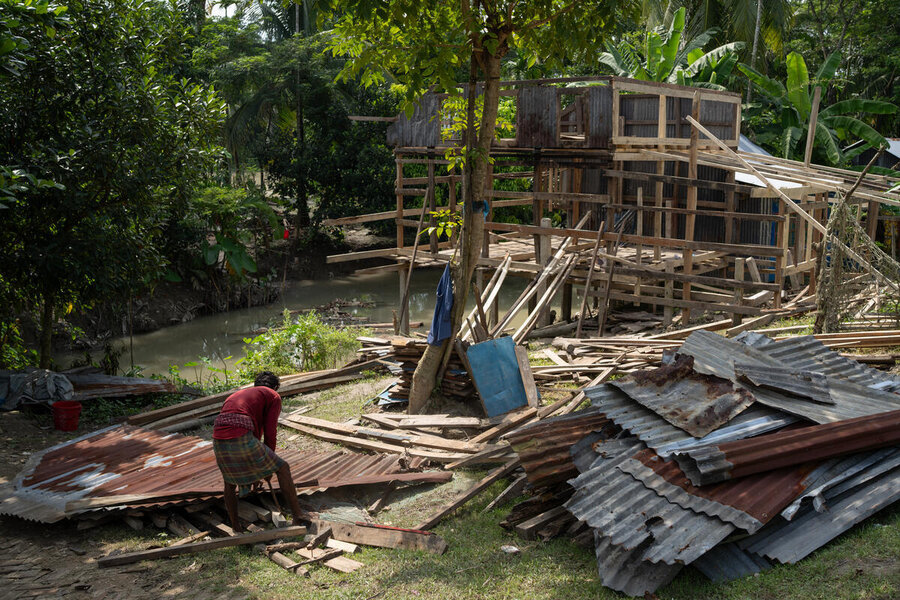
“This speed and reach ahead of floods was nothing short of extraordinary,” says Daniel Pfister, an anticipatory action and financing expert for the UN Office for the Coordination of Humanitarian Affairs, or OCHA, which facilitated coordination around the response. “For me, this is efficiency of funds.”
Preliminary results from WFP’s impact evaluation team analyzing our flood response found people receiving early assistance were better off emotionally and physically. They were more food secure, and less likely to reduce the meals they ate to cope with hardship.
“WFP is doing an amazing job precisely because it thinks about how their puzzle pieces fits,” OCHA’s Pfister says. “it’s about coordinating with other humanitarian partners, which is crucially important in our field.”
“But the most important thing is the human element,” he adds. The early assistance “makes people so much more empowered. It allows them to plan their way through a disaster.”
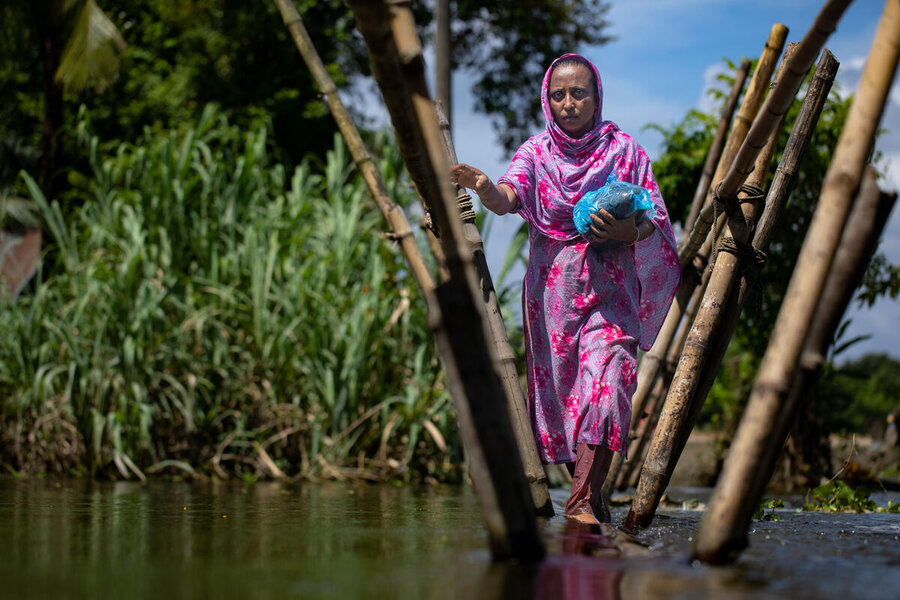
In most cases, WFP’s support targets women, who are more likely than men to invest it in ways benefiting their entire household, WFP’s Dinahar says.
Munda, the fisherwoman, is relieved the storms are over - for now. Flood waters that engulfed her home have subsided.
“I can cook now,” she says. “We are going to manage.”
Canada, the European Union, France, Germany, Korea, Norway, Sweden, UN CERF and private donors, including contributions through ShareTheMeal and the Japan Association for WFP, are supporting WFP’s anticipatory actions in Bangladesh.
